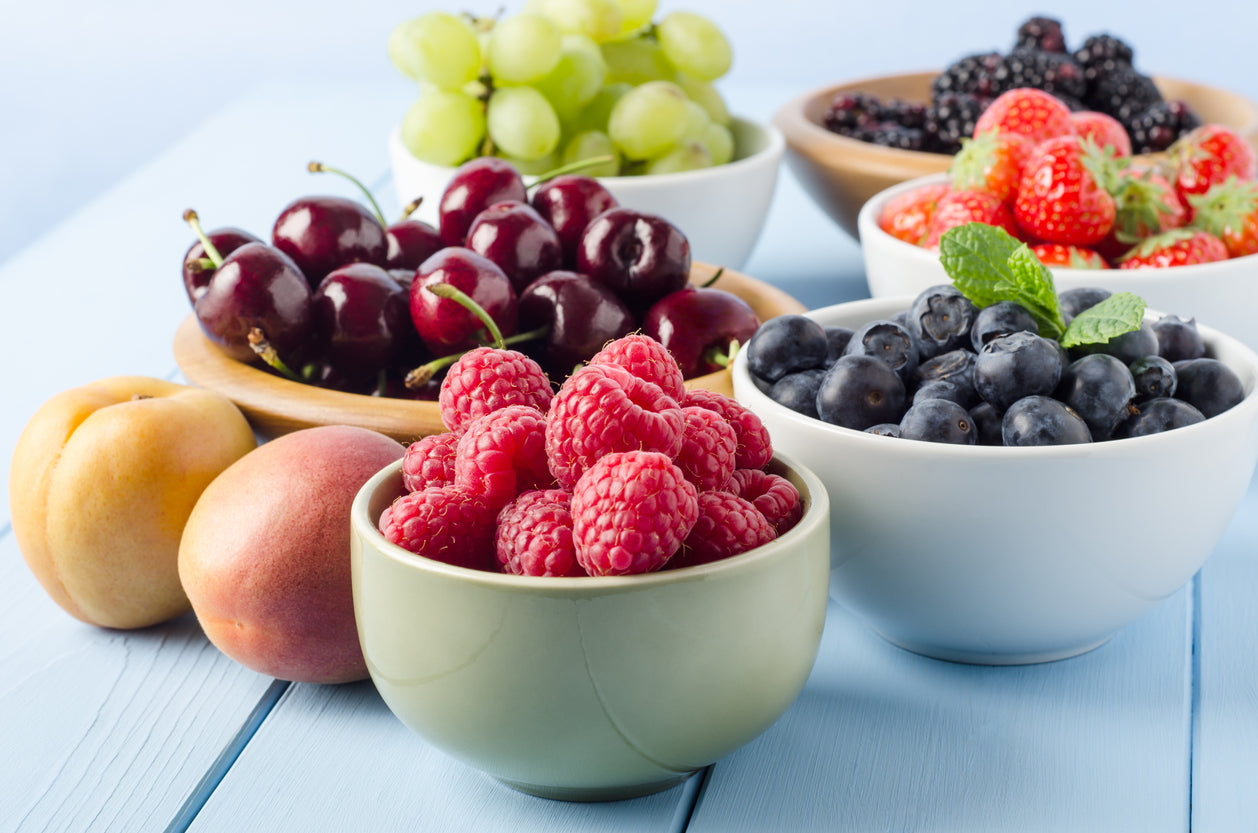Support memory and cognition with these brain-friendly foods

Every day, we are called upon to process a massive amount of data. The constant barrage of information from news services, Facebook posts, Instagram, emails, messaging services, and texts - not to mention the daily demands of family responsibilities and work duties - can leave us feeling overworked, overtired, overstimulated, and, frankly, overwhelmed.
It’s no wonder, then, that many complain of occasional cognitive “glitches” like mental fatigue, confusion, poor concentration, and difficulties with recall. But, help might be as close as your refrigerator. The good news is that certain nutrients have been shown to help support brain function - and may even help protect against age-related cognitive decline and Alzheimer’s disease. Let’s take a look at some particularly brain-friendly foods.
Leafy greens and cruciferous veggies protect both brain and heart
Leafy greens, like spinach, and cruciferous vegetables - such as broccoli, cauliflower, and Brussels sprouts - are rich in folate, a B vitamin believed to help prevent potentially debilitating strokes. They also feature the antioxidant and anti-inflammatory compound quercetin, along with vitamin K, which supports brain and cardiovascular function by helping to prevent atherosclerosis.
And this isn’t the only reason vitamin K-rich greens and vegetables are essential to cognitive function. Vitamin K is also needed to form a specific type of fat essential to brain cells. As they say, the proof is in the pudding - or, in this case, the vegetable drawer and salad bowl. A 2020 study published in the Journal of Aging Research revealed that higher vitamin K levels are associated with better memory and cognitive status in older adults. So, bring on the spinach salads and veggie tray! (Incidentally, if you take blood thinners, check your vitamin K intake with your holistic doctor).
Fabulous flavonoids: Get them in berries and grapes
Multiple studies have showcased the effects of flavonoids, the beneficial plant compounds found in fruits and vegetables. These exist to help protect plants from drought, extreme temperature, and disease - and they may also extend health-protective courtesies to humans.
Flavonoids - which include quercetin (found in virtually all fruits), fisetin (found in strawberries), and anthocyanins (found in blackberries, blueberries, and grapes) - can protect brain cells from oxidative stress and neuroinflammation and are believed to improve cognitive function. In a recent review published in Brain Plasticity, researchers credited flavonoids with helping to ameliorate beta-amyloid plaque deposits and neurofibrillary tangles implicated in Alzheimer’s disease.
Omega-3 fatty acids help power the brain
These anti-inflammatory unsaturated fats are important for the health of the brain and nerve cells and have been associated with lower levels of beta-amyloid. This protein can form harmful deposits in the brain. Cold-water fatty fish, such as wild-caught salmon, sardines, tuna, and trout, are good sources of omega-3s. In fact, the American Heart Association advises eating two three-ounce servings of fatty fish a week.
Vegetarians and vegans can obtain beneficial unsaturated fats through the consumption of walnuts, which are high in a type of omega-3 fatty acid known as alpha-linolenic acid. In a study conducted at UCLA, researchers found that higher walnut consumption was linked with higher scores on cognitive tests measuring memory, concentration, and information processing speed. And, it appears that one doesn’t need to crunch on large amounts of walnuts to obtain cognitive benefits. Participants in this eye-opening study ate less than a handful a day.
Constituent in turmeric fosters the growth of brain cells
Rounding out our group of “brain foods” is turmeric, the bright yellow spice derived from the root of the Curcuma longa plant. Its active ingredient, a compound known as curcumin, has evidence-based abilities to fight oxidative stress and reduce inflammation. In a recent review, scientists characterized curcumin as a promising neuroprotective and potential therapeutic agent for neurodegenerative diseases. Curcumin is believed to help clear beta-amyloid plaques and improve memory in people with Alzheimer’s disease. It is also thought to boost levels of brain-derived neurotrophic factor (BDNF), which spurs the growth of brain cells.
While many holistic healthcare providers agree that it can’t hurt to sprinkle curries, soups, and salads with curcumin-rich turmeric, the amounts used in studies are higher than those normally found in food. You can obtain turmeric as a supplement in capsule and liquid form but check first with your holistic doctor before trying it. In the meantime, enjoy this intriguing, colorful seasoning in the kitchen. The very sight of its cheerful yellow color might make you feel more awake and alert!
While not a “magic bullet” by any means, good nutrition - including healthy amounts of these four foods - can help support mental clarity and memory. (Let’s face it - some days, we need all the help we can get!)
Sources for this article include:






